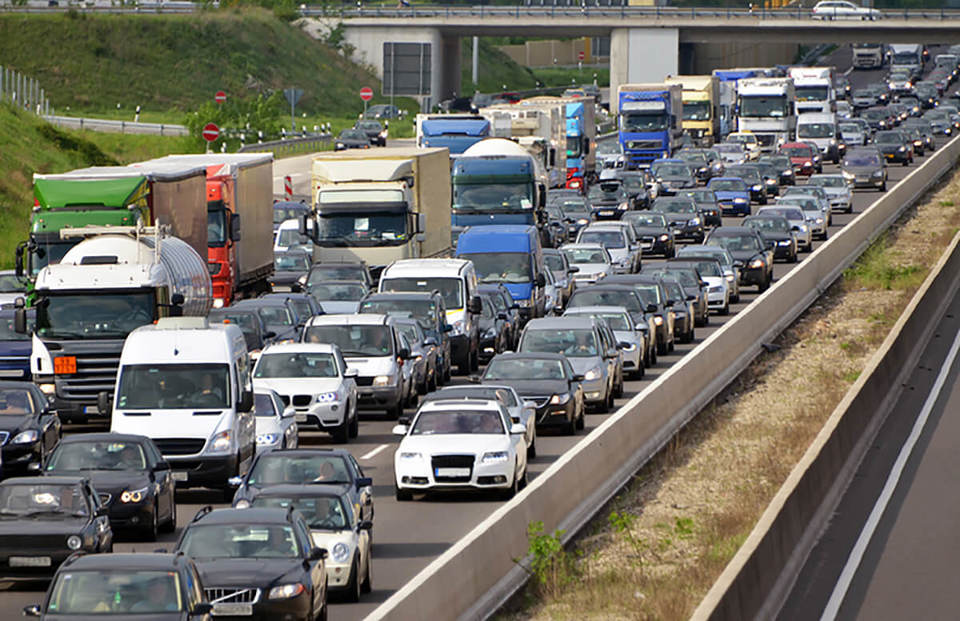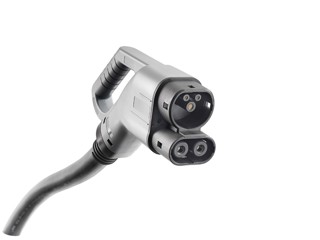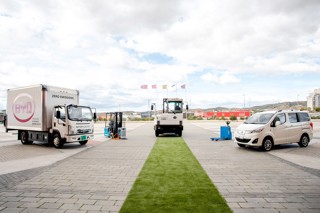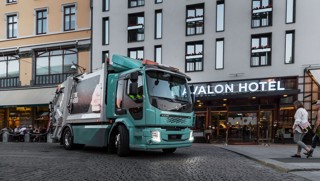The sale of new diesel HGV lorries should be banned by 2040, a new report by the National Infrastructure Commission (NIC) suggests.
The ban on new sales of diesel HGVs should also be part of wider efforts to support the entire road and rail freight industry to become carbon-free by 2050, and to help ease worsening congestion, it says.
Sir John Armitt, the Commission’s chairman, explained that the move was necessary to provide the freight industry with the certainty it needs to invest in new, cleaner technologies.
Measures should include the Government setting a clear framework for freight at all levels of the UK’s planning system to ensure the needs of the sector are considered in land use, local plans and new developments, says the report.
Sir John said: “Whether it’s retailers, manufacturers or each of us as consumers, we all rely heavily on our freight industry. As one of the most efficient in the world, it rarely fails to deliver.
“But we are paying the price for this miracle of modern service through the impact on our environment and air quality, and through congestion on our roads. Government must act to help businesses tackle these issues.
“Today’s report says we need to set out bold plans to ban the sale of new petrol and diesel HGVs, bring emissions from freight on both road and rail to zero and give the industry greater visibility in Whitehall and town halls.”
The development of hydrogen and battery HGVs is already well advanced and vehicles are expected to be commercially available in the early 2020s, says the report.
Christopher Snelling, head of UK Policy at the Freight Transport Association (FTA), said: “The logistics sector is more than willing to make the permanent switch away from carbon-based fuels, but the government must first ensure the infrastructure and funding is in place to support this.”
FTA is calling for the Government to make the necessary investments into alternative fuel vehicles (AFVs) before acting upon the NIC’s recommendation to ban the sale of new diesel HGVs by 2040.
It also wants Government to make the necessary investments in electrification or appropriate alternative fuel to enable rail services to move to a zero-carbon-future.
“FTA is very concerned about how the recommendation to consider road-based alternatives to busy rail corridors will be taken-forward,” added Snelling. “Rail already delivers greener logistics while relieving congestion on Britain’s road network.”
The UK freight industry is one of the most efficient and competitive in the world, using air, sea, road and rail to maximise its effectiveness in the face of capacity and technical constraints. In 2016, the road and rail freight industry moved 1.4 billion tonnes of goods.
But with the increase in same day delivery services, just-in-time manufacturing processes and internet shopping, demand on the sector is set to grow.
Over the next 30 years, heavy freight transport in the UK is expected to increase by at least 27% – and could rise by as much as 45%.
Furthermore, the number of miles covered by vans delivering goods could increase by as much as 89% over the same period.
Freight on road and rail produces around 6% of the UK’s greenhouse gas emissions today. But if no action is taken the sector could be responsible for around a fifth of all allowed emissions by 2050, says the NIC.
With the industry facing high levels of competition and tight profit margins, today’s report suggests that planning well in advance can reduce the cost of transition. But without Government action, it warns the problems of congestion and emissions are likely to worsen.
It recommends that ministers should set out within the next two years how they plan to ban all sales of new petrol and diesel HGVs by 2040 and begin preparing the nation’s infrastructure for this transition.
The report also emphasises there needs to be better coordination between Government, planning authorities and the freight industry.
It recommends the creation of a new Freight Leadership Council to bring all parties together to solve future challenges with an integrated strategy.
Tom Thackray, energy and infrastructure director for CBI, said: “Business has long acknowledged that decarbonisation is a vital ingredient for making the UK economy as competitive and fit for the 21st century as possible.
“However, banning particular technologies, without taking the positive steps needed to support the transition to a low-carbon future and to widen the availability of alternative fuels and technologies will be counterproductive.
“The National Infrastructure Commission’s report rightly recognises road and rail freight as a vital component of the UK economy. But different technologies will have different applications across transport modes, from shipping to air freight. Understanding these will be of the utmost importance if we are to meet our 2050 climate change targets.”
The Commission was established in 2015 to offer independent and impartial advice to Government on meeting the country’s long term infrastructure needs.
In November 2017, Chancellor Philip Hammond charged the Commission with examining the future of the freight industry, and to identify how Government can help companies get their goods to the front door or factory gate faster and more efficiently.
The report – Better Delivery: the challenge for freight – highlights the need for the Government to prepare detailed assessments of the infrastructure needed to enable the uptake of battery electric or hydrogen lorries, and for the energy regulator Ofgem to work with the freight industry to enable charging at depots by 2025 – all to support the ban of petrol and diesel HGVs by no later than 2040.
Snelling concluded “Britain needs the logistics industry to deliver 4.1m tonnes of goods every day of the year to every corner of the country, from central London to the Highlands of Scotland in a wide range of vehicles appropriate to the job.
“There must be support for our industry if changes are to be made, since UK PLC cannot survive without the support of the logistics sector.
“While gradual change is already taking place within the logistics sector – operators have been moving to new forms of fuels and vehicle for some time – to implement such swift change requires an equally radical government investment. After all, operators cannot magic new vehicles out of thin air.”
The NIC’s full report can be viewed by clicking here.
























Edward Handley - 19/04/2019 14:24
Demands for total bans are great for getting headlines, but all too often they ignore reality. This strikes me as yet another: Electric and hydrogen power is moving ahead very rapidly and if the pace of development continues, or even accelerates, there will be no need to ban new diesel engined vehicles because the carbon free alternatives will be quicker, quieter, more efficient and much cheaper (assuming the Government does not slap heavy taxes on them to maintain the tax take) so operators will automatically go for alternative fuels and will stop buying diesels. However, there are many specialist operations where even in the next century we may well find that diesel is the most practicable option. No policy decision though exists in isolation, and inevitably there are unexpected consequences. Even if we de-carbonise road transport, we will still need to extract oil from the earth's crust, as oil is the basis of so much of the chemical industry and is an essential ingredient of plastics, chemicals, drugs, etc. Do you think your car's tyres are made of rubber extracted from rubber trees ? If so think again, and think instead of butyl polymers. Crude petroleum contains a wide range of substances which include petrol and diesel. It is possible to crack the heavier substances down into lighter ones, but you cannot turn the lighter bits like petrol and hexane into heavier ones like bitumin. If we stop burning petrol and diesel in vehicles we will have to find some other way of buring it because I am quite certain the oil companies are not going to pump it back down disused oil wells. The danger is that the alternative ways of disposing of the "surplus" fractions may prove to be a lot less environmentally friendly than our Euro 6 cars and trucks, although by 2040 they will probably be Euro 16 and will have "Air Purification Unit" painted on the side and will be paid to drive through our big cities as an essential public service.